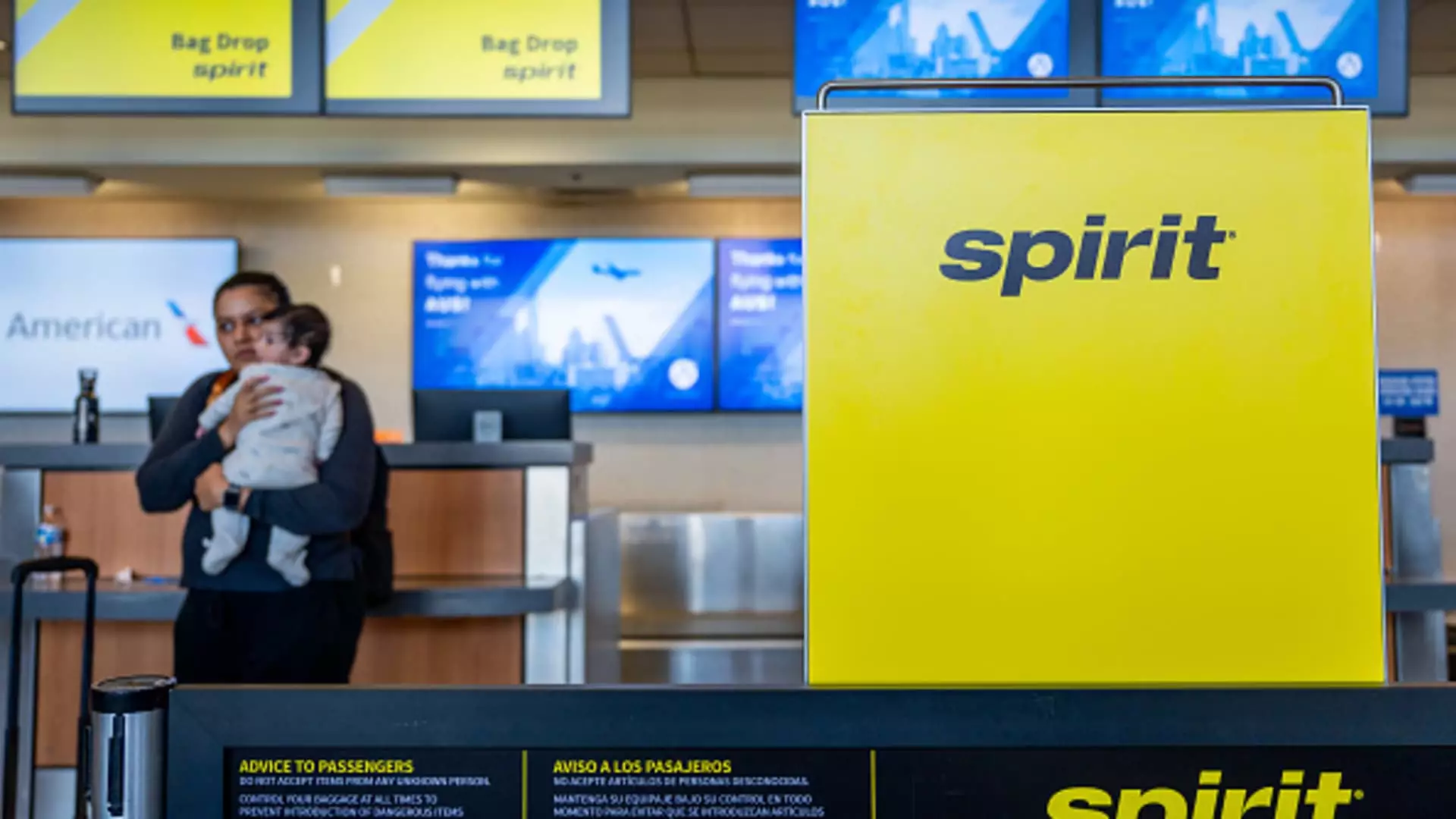In a significant development within the aviation sector, Spirit Airlines has entered Chapter 11 bankruptcy protection, marking it as the first major U.S. airline to take such a step in over a decade. This occasion follows the historic filing by American Airlines back in 2011. While some may interpret this as a sign of despair for the budget airline, it is crucial to clarify that Spirit is not shutting down. Instead, the bankruptcy filing serves as a structured opportunity for the airline to reorganize its finances and operational strategy, enabling it to continue its flight operations and generate critical revenue in a challenging market landscape.
The carrier has been grappling with financial difficulties since 2019, and the situation intensified following the COVID-19 pandemic. Airlines across the globe faced soaring operational costs and disruptions, but Spirit was particularly hard-hit. Several of its Airbus jets were grounded due to an extensive engine recall, and the anticipated acquisition by JetBlue was derailed by legal challenges. These factors combined to create a formidable financial burden, with Spirit struggling to renegotiate significant debts scheduled for payment in the near future.
To address its mounting challenges, Spirit Airlines has communicated a prearranged plan with its bondholders that involves a relatively streamlined approach to its Chapter 11 filing. The company aims to exit the bankruptcy process by early 2025, allowing it a respite from creditor pressures while planning operational adjustments. The essence of filing for Chapter 11 is not to cease operations but rather to provide a protective framework within which the airline can revise its business model, potentially divesting non-essential assets or re-evaluating its fleet.
The interim period will be critical for maintaining a robust schedule, especially as the holiday season approaches. Airline revenues during this period are traditionally heightened, and keeping operations running smoothly is vital for Spirit’s recovery. Nonetheless, analysts warn that travelers should remain vigilant regarding potential changes, such as modifications to flight schedules or staffing adjustments, which could impact their travel experience.
For travelers holding reservations with Spirit, understanding their rights becomes increasingly crucial during this transition. The U.S. Department of Transportation (DOT) stipulates that passengers are entitled to cash refunds if their flights are canceled, providing a safety net in uncertain times. However, the process may become convoluted due to the bankruptcy filing. Spirit has stated its intention to honor bookings and continue operations; nonetheless, the DOT has cautioned that obtaining refunds might become more complex, as the airline could restrict refunds to conserve resources.
For those concerned about the potential for flight cancellations, it may be beneficial to leverage credit card protections when purchasing tickets. Using a credit card can offer greater recourse under the Fair Credit Billing Act, ensuring refunds may be issued if required, even if the airline creates roadblocks. Additionally, securing refundable tickets from alternative carriers—while often at a premium—can provide peace of mind for those with tight schedules or critical travel needs.
As Spirit Airlines navigates through its restructuring process, the implications extend beyond its own operations and influence the broader aviation landscape. The possibility of Spirit emerging from bankruptcy as a leaner, more efficient airline raises essential questions about market competition and the availability of low-cost travel options. Given the financial turbulence witnessed across various airlines, Spirit’s situation may embolden other carriers to explore mergers or acquisitions to strengthen their positions in the market.
Moreover, the potential for industry consolidation could become a topic of discussion again, especially in light of previous merger attempts between Spirit and Frontier Airlines prior to JetBlue’s interference. Observers will be keenly watching how the evolving airline dynamics—possibly influenced by upcoming regulatory changes—shape future competitive practices.
While Spirit Airlines’ Chapter 11 filing may induce feelings of uncertainty among travelers, the airline is taking proactive measures to stabilize its future. Passengers should remain well-informed and adaptable as they traverse this transitional period. As the situation evolves, consumers must prioritize their rights and consider practical measures to mitigate risks associated with flight alterations. In a landscape marked by rapid change and volatility, understanding the nuances of airline operations and your own entitlements can significantly enhance your travel experience.


Leave a Reply